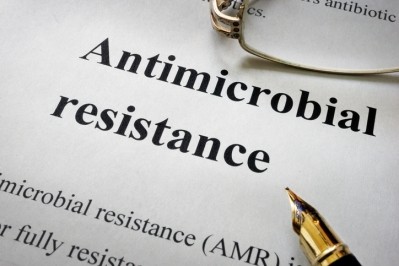MEPs back F2F strategy report, farming and feed groups aghast at ‘lack of impact assessment’ on amendments

Member of the European Parliament’s Agriculture (AGRI) and Environment (ENVI) committees adopted a report on the EU Farm to Fork Strategy (F2F) today [September 10] by 94 votes to 20 and 10 abstentions.
“There is a need for enhanced sustainability in all stages of the food chain and everyone from farmer to consumer has a role to play, they say. A shift in consumption towards more healthy diets is also needed. Overconsumption of meat and highly processed foods with high salt, sugar and fat content must be addressed,” said the policymakers in a press release that followed the vote.
Binding reduction targets for pesticide use are also needed, as is more land for organic farming, they added. Moreover, animal welfare standards must be reviewed, said the MEPs.
The report on the F2F strategy will now be sent to plenary for a final vote scheduled for early October.
Amendments draw fire
A raft of amendments to that report were voted upon on Thursday by the MEPs.
Reacting to the outcome of the ballot on Thursday, EU farming representatives, Copa and Cogeca, said they could not support the report as amended, given the lack of impact assessment on certain proposals.
“Environmental sustainability cannot be disconnected from social and economic sustainability,” stressed the Brussels-based organization.
Despite the growing evidence on the impact of the F2F strategy and the repeated warnings from a large number of stakeholders, MEPs decided to add several new requirements to the initial proposal from the EU Commission, said Copa and Cogeca.
“The final text contains some interesting proposals and advances, particularly when it comes to innovation, carbon farming or trade. However, a limited but very impactful number of proposals, approved today by the vote of the AGRI and ENVI Committees, quite simply call into question our food sovereignty, the future of our agriculture and our rural areas.”
If the EU wants farmers to succeed, it will have to support them with a political framework based on realistic objectives, said the farming group.
The EU executive will have to ensure a level playing field with imports and provide the necessary financial support and assistance to farmers for a sustainable transition, added Copa and Cogeca.
Following today's developments, the farming body is calling on all MEPs, who will have to take a position in plenary in October, to support the reshaping of the most penalizing elements of the proposals to ensure the viability of the transition to a more sustainable food system.
"We also call for a real methodological breakthrough at EU level: we cannot continue to add objectives and targets without considering the costs and the impacts incurred by these proposals."
Report risks being 'untenable' for the agri-food sector
EU feed industry representatives, FEFAC, was one of many stakeholders that, in a joint declaration released on Tuesday, warned against several of the tabled additional objectives and targets which they claim are potentially “untenable” for the EU agri-food sector.
The signatories noted a study by the JRC evaluating the impact of the flagship policy launched by the EU Commission in 2020, indicating the strategy would lead to significant drops in productions and significant additional costs for producers. “Even if a reduction in EU agricultural emissions could result from this strategy, a large part of it would come from the relocation of our production to third countries.”
Not everyone agrees.
The WWF, in aa statement issued earlier this week, said the scientific evidence shows that the EU food system is currently not sustainable, and that major changes are needed in how food is produced, traded and consumed, if we are to respect international commitments and planetary boundaries.
“The Farm to Fork Strategy, presented by the European Commission in 2020 as a central element of the European Green Deal, is a potential game-changer in this area. This is because it breaks through silos and brings together multiple policy initiatives that aim to make the food system more sustainable.”
Copa-Cogeca said the compromise amendments of the EP draft report on F2F that it strongly disagrees with are:
Compromise Amendment 4 Reduction targets for pesticides, fertilizers and AMR
Compromise Amendment 18 Zoonotic diseases
Compromise Amendment 25 Processed foods, nutrition claims and front-of-pack nutrition labelling
Compromise Amendment 27 Food environment and food prices
Compromise amendment 28 Labelling origin, sustainability and animal production
Compromise amendment 33 Food waste








